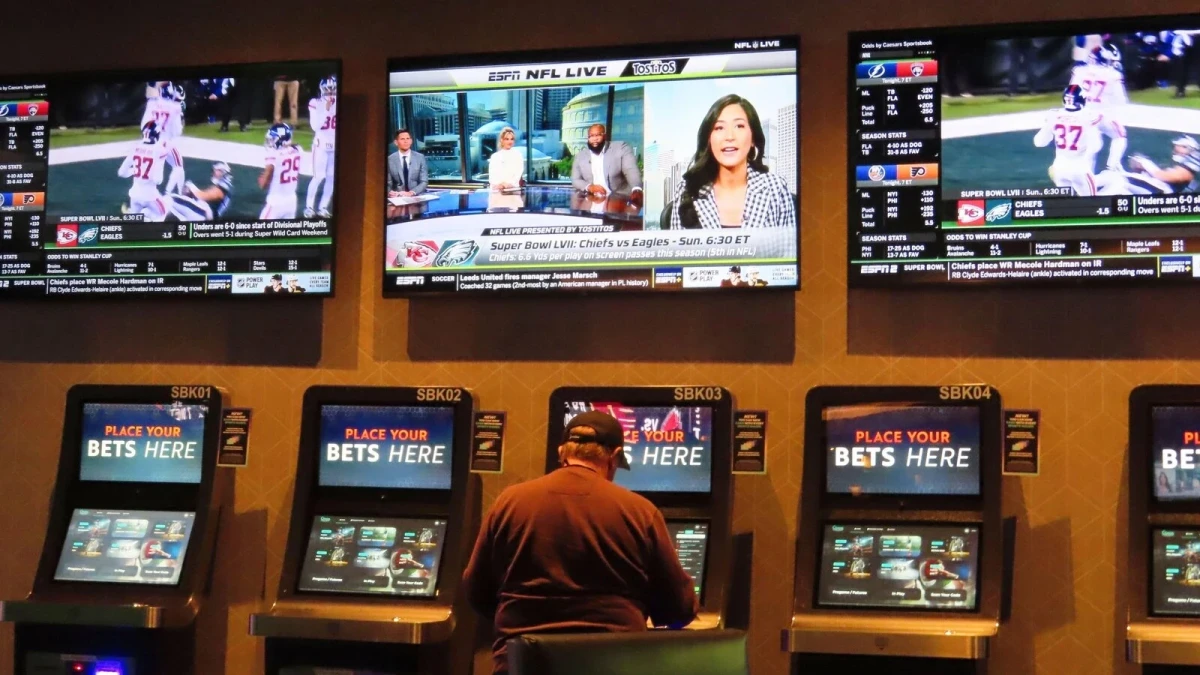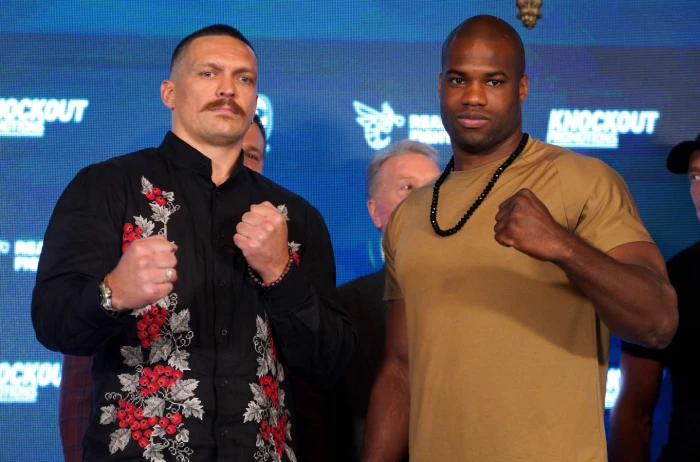Home betting scandals: The dark side of sports gambling in Britain

sports gambling
Gambling and sports are two sides of the same coin.
On the one hand, they bring pleasure, adrenaline and the opportunity to earn money. On the other hand, they carry risks, dependence and losses. But what if these two sides intersect?
What if athletes bet on their own matches, fixing the results and cheating the casino?
This is not a hypothetical question, but a real problem that pops up in the world of sports and gambling from time to time, causing scandals and disappointments.
In this article we will look at how athletes are involved with casinos not on gamstop, how they cheat them, what financial aspects underlie the gambling business, what measures are taken to regulate and prevent such situations, and what impact they have on players and society.
We will also mention some famous cases where athletes were involved in betting on their own matches and how it affected their careers and reputations.
Athletes and their connection with casinos
Athletes are people who dedicate their lives to their sport, train, compete and strive to win.
Some of them love gambling and do not see anything wrong with it if it does not interfere with their professional activities.
However, sometimes they cross the line and start betting on their own matches, driven by various motives: greed, ambition, desperation, revenge, boredom or just for fun.
The connection between sports and gambling is not new and has been around for a long time.
Athletes can play in casinos like any other person, and it is not prohibited if they do not break the rules. However, they cannot bet on their own matches, or on matches involving their partners or opponents. This is considered cheating and is punishable by disqualification, fines or even jail time.
Examples of famous cases
There have been many cases in the history of sports where athletes have been involved in betting on their own matches, or on matches in which they had influence. Here are some of them:
- In 1919, one of the most famous scandals in the world of baseball occurred in the United States, when eight players of the Chicago White Sox team were accused of colluding with bookmakers and losing four of five games in the finals against the Cincinnati Reds. This scandal was called the Black Sox Scandal, and resulted in eight players being banned for life from baseball and their team losing popularity and success.
- In 1980, there was a snooker scandal in England when two players, Alex Higgins and Peter Munson, were accused of fixing the result of their World Championship quarter-final match. They were rumored to have placed a £10,000 bet on Higgins winning 13-12. That's exactly what happened, although Higgins led the match 12-6 and could have easily ended it early. Both players were suspended for five years, but the charges were later dropped due to insufficient evidence.
- In 2000, there was a scandal in the world of football in Germany when referee Robert Heuser was accused of receiving money from bookmakers for influencing the results of matches in which he refereed. He admitted that he did this in four matches, including the Champions League qualifying match between Porto and Rosenborg. He was sentenced to two years and five months in prison and also lost his refereeing licence.
Analysis of strategies and methods used by athletes to defraud casinos
There are many ways that athletes can try to cheat the casinos and gain an advantage over them. Here are some of them:
● Using false identities or documents. This may be done to hide one's true identity and avoid detection or prosecution. For example, an athlete may use another person's passport or driver's license, or even create a false document, to register at a casino and bet on his own matches, or on matches in which he has influence.
● Use of intermediaries or accomplices. This may be done in order to delegate betting on his own matches, or on matches in which he has influence, to other people who act on his behalf and receive a percentage of the winnings. For example, an athlete may hire another person to place bets in a casino or online, using information the athlete gives him.
● Use of bonuses or promotions. This can be done to get extra money or casino gaming opportunities and increase your chances of winning. For example, an athlete can take advantage of a bonus offered by a casino, such as the rabbit win casino no deposit bonus, which gives the player the opportunity to play without making a deposit and receive winnings in real money.
The impact of such schemes on the integrity of the sport and the trust of bettors
Such schemes, which are used by athletes to defraud casinos, have a negative impact on the integrity of the sport and the trust of bettors.
They violate the rules and principles of fair play, and spoil the reputation of the sport and athletes.
They also harm the interests of casinos and bettors, who lose money and become victims of fraud.
They also create an uneven playing field for other players who are unaware of the rigging and play according to the rules.
Financial aspects of casino business
The gambling business is one of the most profitable and influential businesses in the world. It includes different types of gambling such as casinos, lotteries, sports betting, poker, bingo and others.
It also includes various factors such as laws, technology, markets, competition, supply and demand, risks and opportunities.
According to the World Bank, the global gambling market was worth about $465 billion in 2019, and could reach $516 billion by 2023.
This shows how big and dynamic this business is, and what prospects it opens up for its participants.
Considering the role of money in the world of gambling
Money is the main motivator and goal for most participants in the gambling business.
Players gamble to win money, or at least to avoid losing it. Casinos and bookmakers offer gambling to make money, or at least not to lose it. Suppliers provide goods and services for the gambling business in order to make money, or at least not to lose it.
Regulators and tax authorities monitor and regulate the gambling business in order to make money, or at least not to lose it.
Money is also a source of problems and conflicts for participants in the gambling business.
Gamblers can lose money and become addicted to gambling, or victims of fraud and deception.
Casinos and bookmakers can lose money, and become targets of crime and corruption, or victims of unfair competition and regulation.
Suppliers can lose money, and become vulnerable to theft and counterfeiting, or victims of poor quality and unreliability.
Regulators and tax authorities can lose money and become ineffective and fair, or become victims of bribes and pressure.
Interaction between athletes and casinos in financial terms
Athletes and casinos have a complex and contradictory financial relationship.
On the one hand, they can be partners who cooperate and receive mutual benefits.
For example, athletes may receive sponsorship or advertising from a casino, or participate in charity or entertainment events organized by a casino.
Casinos can gain popularity or loyalty from athletes, or increase their revenue from sports betting.
On the other hand, they may be rivals who compete and harm each other.
For example, athletes may bet on their own matches, or on matches in which they have influence, and defraud casinos, or receive illegal money from bookmakers.
Casinos may influence the results of matches, or bribe athletes, or use unfair practices to reduce their losses or increase their winnings.
The role of the Gambling Commission in the UK in regulating gambling
In the UK, gambling is regulated by the Gambling Commission, which is an independent body created in 2005 under the Gambling Act. The Gambling Commission has the following tasks and powers:
- Issue licenses for gambling in the UK, including casinos, bookmakers, lotteries, poker, bingo and others.
- Monitor compliance with the rules and standards that are established for gambling, including in relation to fairness, safety, the protection of minors and vulnerable groups, the prevention of crime and money laundering, and the promotion of responsible gambling.
- Impose sanctions and fines on violators, including revoking licenses, suspending activities, issuing warnings, imposing fines or referring cases to court.
- Conduct gambling-related research and analysis, including collecting and publishing statistics, monitoring trends and risks, assessing the impact and effectiveness of regulation, and developing recommendations and strategies.
Measures taken by casinos and sports organizations to prevent such scandals
Casinos and sports organizations also have a responsibility to prevent and combat such scandals that involve betting on their own matches.
They must comply with the rules and laws that govern gambling and cooperate with the Gambling Commission and other authorities and organizations. They must also take the following measures:
- Establish and maintain high standards of ethics and professionalism, and train your employees, partners and clients about them.
- Develop and implement policies and procedures that are aimed at preventing and detecting fraud, deception and tampering, and regularly review and improve them.
- Carry out checks and audits that help identify and prevent any irregularities or violations related to gambling, and report them to the Gambling Commission and other authorities and organizations.
- Collaborate with other casinos and sports organizations involved in gambling and exchange information and experiences that help prevent and combat similar scandals.
- Provide support and assistance to its employees, partners and customers who are experiencing problems associated with gambling, such as addiction, debt, threats or blackmail, and refer them to appropriate services or organizations. For example, they may offer them free and confidential advice, or give them contacts of organizations that specialize in helping people with gambling problems, such as BeGambleAware.
Research into the impact of such scandals on the image of sports and gambling in society
Such scandals spoil the image of sports and gambling in society and create negative perceptions and attitudes towards them.
They undermine the values and principles associated with sports and gambling, such as honesty, fairness, respect, responsibility and fun.
They also reduce confidence and interest in sports and gambling, and can lead to a decrease in their popularity and participation.
According to a study conducted by the Gambling Commission in 2019, 29% of respondents believe that gambling is unfair and distrusted, and 43% believe that gambling is associated with crime.
According to a 2018 Pew Research Center study, 69% of those surveyed believe that professional sports are less fair and ethical than they used to be, and 26% believe that athletes often or sometimes engage in performance manipulation.
Assessing implications for athletes' careers and status
Such scandals have serious consequences for the careers of athletes and their status.
They can cause athletes to lose their achievements, awards, contracts, sponsors, fans and respect.
They may also result in athletes facing disciplinary, administrative, judicial or criminal sanctions that may limit or terminate their professional activities.
They can also cause athletes to experience psychological or emotional difficulties such as stress, depression, shame, guilt or fear.
Conclusion
In conclusion, we can say that betting on your own matches is the dark side of sports gambling, which has many negative consequences for sports, gambling, players and society.
This is an issue that requires responsibility and regulation from all participants in the gambling business, as well as cooperation and information exchange between them.
In this article, we looked at how athletes are associated with casinos, how they cheat them, what financial aspects underlie the gambling business, what measures are taken to regulate and prevent such situations, and what impact they have on players and society.
We hope that you found this article interesting and useful, and that you learned something new about the topic.
If you want to learn more about casinos that don't follow Gamstop's rules, you can visit GamblingSites.com, which offers in-depth reviews and recommendations for the best casinos.



